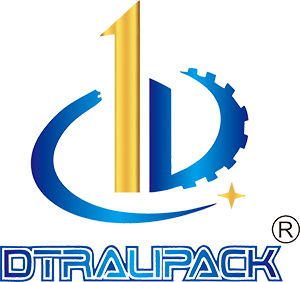Understanding Case Sealer Machines: A Comprehensive Guide to Packaging Efficiency
Time:
2025-06-22 10:20
Source:
In today's fast-paced manufacturing and packaging industries, efficiency and reliability are critical for maintaining a competitive edge. One essential piece of equipment that contributes significantly to these goals is the case sealer machine. Designed for sealing corrugated boxes and cases, these machines streamline the packaging process, minimizing labor costs and enhancing production speed.
A case sealer machine operates by applying adhesive, tape, or other sealing mechanisms to securely close boxes, ensuring that products are protected during storage and transport. There are various types of case sealers available, including manual, semi-automatic, and fully automatic models, each catering to different production volumes and operational needs.
Manual case sealers require operators to perform the sealing process by hand, making them suitable for small businesses or operations that deal with low volumes. In contrast, semi-automatic and automatic case sealers can significantly reduce labor intensity by automating the sealing process, which is ideal for larger operations that require higher throughput.
One of the prominent advantages of using a case sealer machine is its ability to increase packaging speed. By automating the sealing process, businesses can achieve higher output rates, ultimately leading to improved overall productivity. Moreover, a well-sealed box minimizes the risk of damage during transit, which is crucial for maintaining product integrity and customer satisfaction.
In addition to speed, case sealers also enhance consistency in packaging. Manual sealing methods can lead to variability in seal quality, which may affect the reliability of the packaging. In contrast, automated case sealers produce uniform seals, ensuring that every box meets the required standards for strength and durability.
Another critical factor to consider when selecting a case sealer machine is its adaptability to different box sizes and types. Many modern machines come with adjustable features, allowing them to accommodate various box configurations without needing extensive reconfiguration. This flexibility is particularly beneficial for businesses that offer diverse product lines.
Maintenance of case sealer machines is also vital for sustained performance. Regular checks and timely servicing can help prevent breakdowns and ensure that the machine operates efficiently over time. This proactive approach can save businesses from costly downtimes and repairs in the long run.
In conclusion, case sealer machines play an essential role in enhancing packaging efficiency and reliability. By understanding the various types of machines available and their benefits, businesses can make informed decisions that align with their production goals. Investing in the right case sealer not only improves operational efficiency but also contributes to overall customer satisfaction by ensuring products arrive safely and securely.
A case sealer machine operates by applying adhesive, tape, or other sealing mechanisms to securely close boxes, ensuring that products are protected during storage and transport. There are various types of case sealers available, including manual, semi-automatic, and fully automatic models, each catering to different production volumes and operational needs.
Manual case sealers require operators to perform the sealing process by hand, making them suitable for small businesses or operations that deal with low volumes. In contrast, semi-automatic and automatic case sealers can significantly reduce labor intensity by automating the sealing process, which is ideal for larger operations that require higher throughput.
One of the prominent advantages of using a case sealer machine is its ability to increase packaging speed. By automating the sealing process, businesses can achieve higher output rates, ultimately leading to improved overall productivity. Moreover, a well-sealed box minimizes the risk of damage during transit, which is crucial for maintaining product integrity and customer satisfaction.
In addition to speed, case sealers also enhance consistency in packaging. Manual sealing methods can lead to variability in seal quality, which may affect the reliability of the packaging. In contrast, automated case sealers produce uniform seals, ensuring that every box meets the required standards for strength and durability.
Another critical factor to consider when selecting a case sealer machine is its adaptability to different box sizes and types. Many modern machines come with adjustable features, allowing them to accommodate various box configurations without needing extensive reconfiguration. This flexibility is particularly beneficial for businesses that offer diverse product lines.
Maintenance of case sealer machines is also vital for sustained performance. Regular checks and timely servicing can help prevent breakdowns and ensure that the machine operates efficiently over time. This proactive approach can save businesses from costly downtimes and repairs in the long run.
In conclusion, case sealer machines play an essential role in enhancing packaging efficiency and reliability. By understanding the various types of machines available and their benefits, businesses can make informed decisions that align with their production goals. Investing in the right case sealer not only improves operational efficiency but also contributes to overall customer satisfaction by ensuring products arrive safely and securely.
Case Sealer Machine
News
2025-06-19



